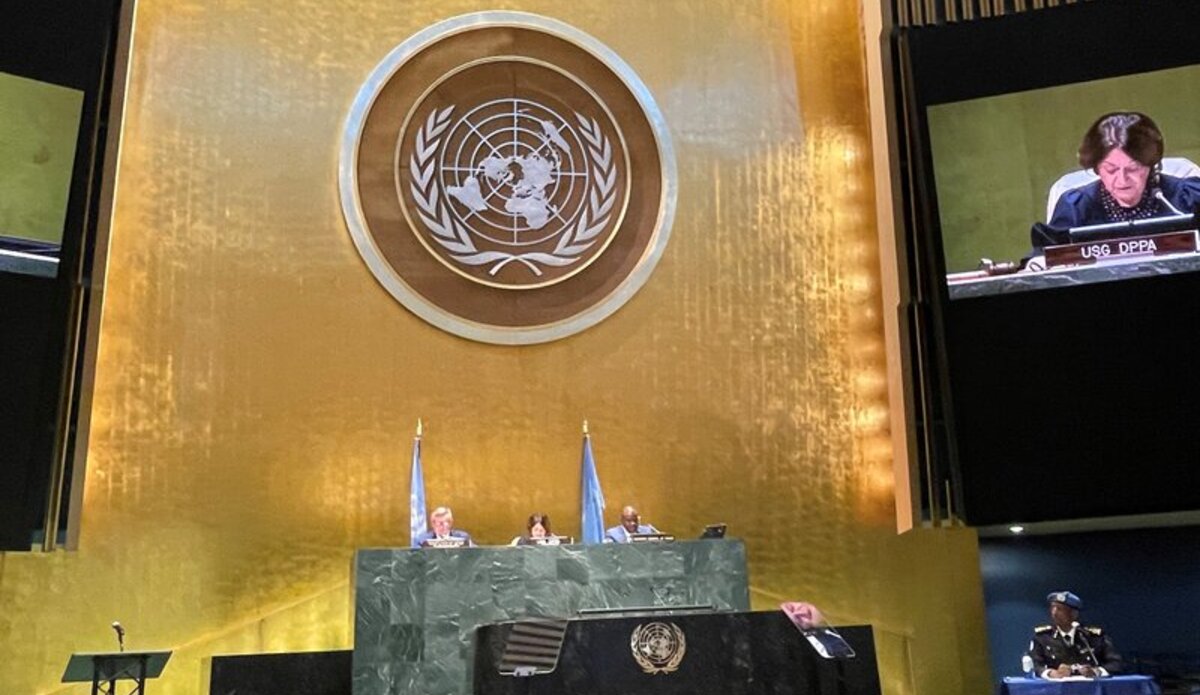Dear colleagues,
Ladies and gentlemen,
I am very pleased to join you for the third United Nations Chiefs of Police Summit.
I would like to start by commending you and your colleagues for continued dedication to protecting the communities you serve, particularly in an environment as challenging as the one we currently face.
Policing has been an integral part of the United Nations peace and security work since the first UN Police was deployed, over six decades ago. Though the role of UN Police has evolved significantly in scope and scale, it remains as vital today as it was then, as a fundamental pillar of our efforts to maintain international peace and security.
An important aspect of this evolution is how UN policing supports the work of our special political missions. These missions are civilian in character but still requested to provide specialized support to national authorities in reforming national security institutions and law enforcement. To deliver on these mandates, we have greatly benefited from the expertise provided by UN Police and from the deployment of police advisers to our missions.
In environments as complex as Libya and Sudan, UN Police is supporting the work of our missions by advancing respect for human rights in national justice, police, and corrections systems. Advice on transitional justice and reconciliation issues is also essential for peace processes and transition roadmaps.
In Somalia, for example, UN police advisers are supporting the implementation of the New Policing Model. They have helped recruit and train hundreds of police officers in several federated states. This is a fundamental part of our mandate to help strengthen federal institutions in the country.
In Libya, UN Police works closely with the Ministry of Interior to develop a community-oriented policing concept, prison management policies and specialized training to police officers.
A crucial aspect of the work of UN Police is to help Member States put in place more gender sensitive law enforcement practices. This work starts with more diverse police forces, with a higher representation of women. We have achieved important progress in this area.
In Haiti, we stepped up efforts to promote women’s representation in the police, including by dedicated outreach to encourage women to apply for law enforcement jobs. As a result, women now account for 11 per cent of the workforce of the Haitian National Police.
In Sudan, our Police Advisors have helped the Police Force establish two gender desks in Central Darfur, an important step to respond to sexual and gender-based violence and promote gender-sensitive policing in the region.
Distinguished colleagues,
The deteriorating global peace and security environment we face today has affected all aspects of our work. Our operating environments are increasingly characterized by high levels of violence, widespread human rights violations, and humanitarian needs that outpace our ability to respond. Most regions of the world are still struggling under the effects of the COVID-19 pandemic, while climate change is exacerbating existing fragilities and creating new ones.
This has significantly affected our peacemaking and peacebuilding mandates. It has also had a significant effect for the work of UN Police.
In response to the UN75 Declaration, the Secretary-General presented his report on “Our Common Agenda”. The report offers an ambitious vision for sustainable peace, development, and human rights: a renewed, more inclusive and networked multilateralism at the international level; addressing exclusion and inequalities at the domestic level; more solidarity towards current and future generations; and a United Nations that is fit for a new era.
The Secretary-General also committed to preparing a New Agenda for Peace that puts prevention and violence reduction at the centre of our work. It will offer a robust vision for strengthening the “diplomatic toolbox” contained in Chapter VI of the UN Charter. The aim is to renew the global consensus around cooperation for our collective security.
Delivering on these commitments will be a significant undertaking, particularly in the polarized global environment we face today. It will require all of us to work together, building on our respective strengths. I look forward to your support to this agenda, and to your continuing cooperation with the United Nations and with my Department of Political and Peacebuilding Affairs.

